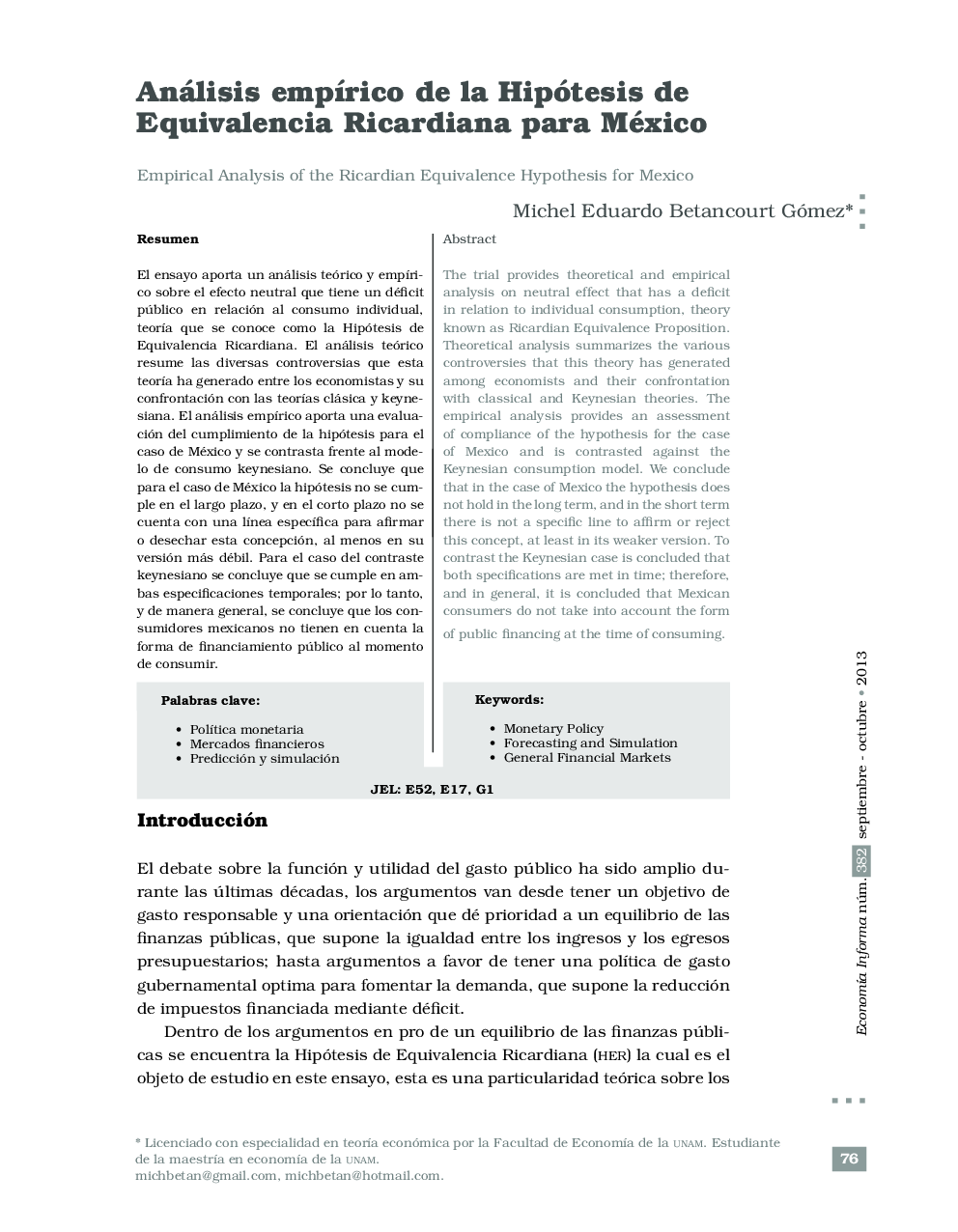| Article ID | Journal | Published Year | Pages | File Type |
|---|---|---|---|---|
| 7345593 | Economía Informa | 2013 | 23 Pages |
Abstract
The trial provides theoretical and empirical analysis on neutral effect that has a deficit in relation to individual consumption, theory known as Ricardian Equivalence Proposition. Theoretical analysis summarizes the various controversies that this theory has generated among economists and their confrontation with classical and Keynesian theories. The empirical analysis provides an assessment of compliance of the hypothesis for the case of Mexico and is contrasted against the Keynesian consumption model. We conclude that in the case of Mexico the hypothesis does not hold in the long term, and in the short term there is not a specific line to affirm or reject this concept, at least in its weaker version. To contrast the Keynesian case is concluded that both specifications are met in time; therefore, and in general, it is concluded that Mexican consumers do not take into account the form of public financing at the time of consuming.
Related Topics
Social Sciences and Humanities
Economics, Econometrics and Finance
Economics and Econometrics
Authors
Michel Eduardo Betancourt Gómez,
